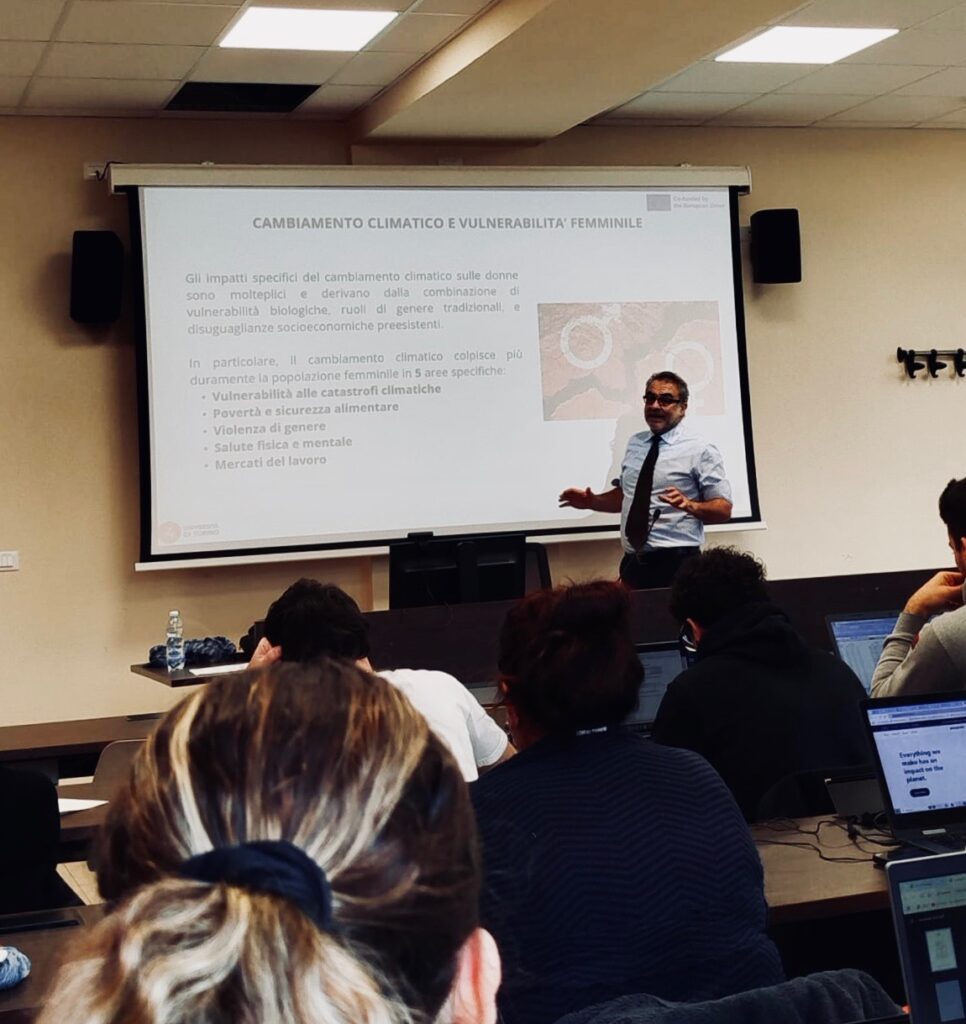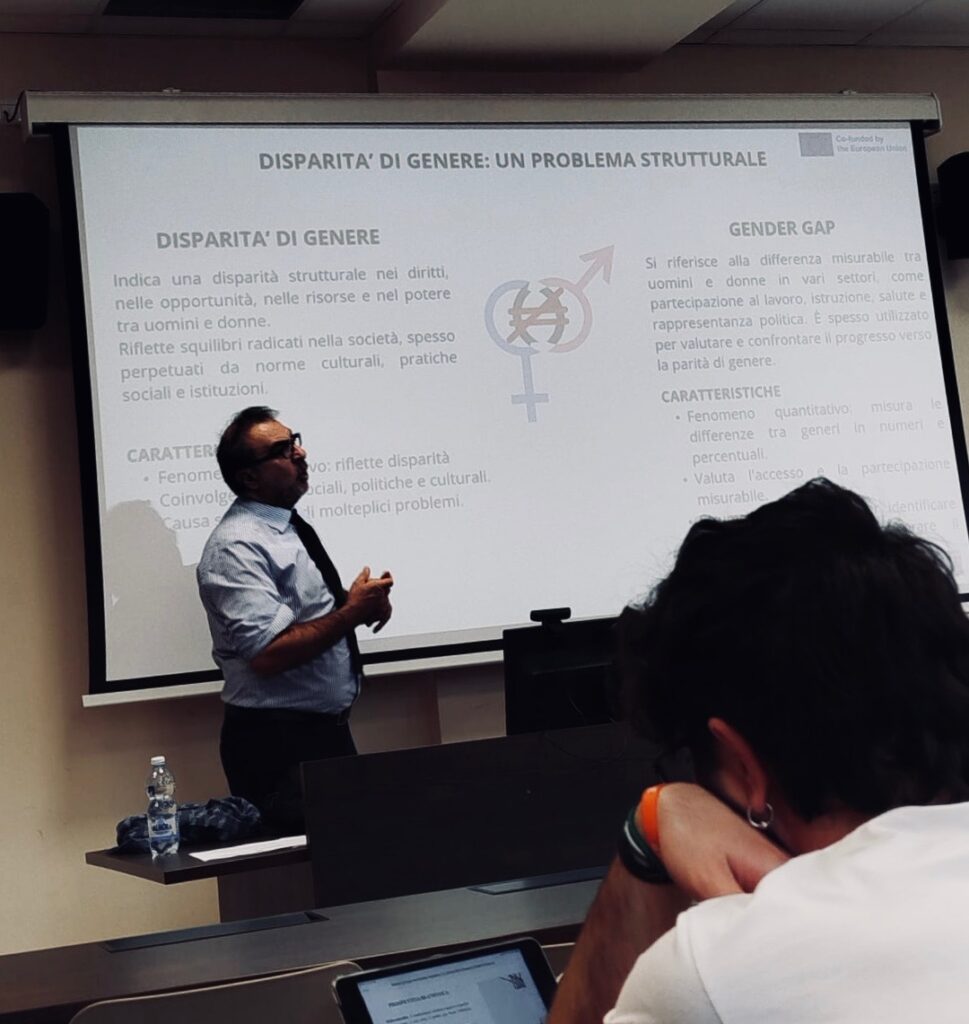On November 21, 2024, the Department of Management of the University of Turin and AMAPOLA hosted the event “Climate Change and Gender Gap: A Bi-Univocal Perspective.” The event provided an in-depth exploration of the complex and reciprocal relationship between climate change and gender inequality, bringing together experts, students, and researchers to reflect on these interconnected challenges.
The session featured insightful contributions from Professor Maurizio Cisi and Researcher Marilena Gambardella, who presented key topics such as ecological transition, the inclusion of minorities in decision-making processes, and the importance of female leadership in managing change. Their discussions framed these issues from a bi-univocal perspective, highlighting how climate change and gender disparities influence one another in a continuous cycle.

Key Discussion Points
- The bidirectional nature of the phenomenon: Climate change disproportionately impacts marginalized groups, particularly women, thereby widening existing gender gaps. In turn, these gender inequalities hinder the effectiveness of climate policies and solutions
- The need for an integrated approach to sustainability, recognizing that gender equity and environmental action must go hand in hand to create lasting and inclusive solutions.
The discussions were supported by data and statistics from international sources, providing valuable insights into the intersection of social and environmental issues. In particular, the speakers explored the UNI PdR 125:2022 standard, discussing its gender-related KPIs and ISO standards that guide companies worldwide in achieving gender balance and enhancing corporate sustainability.

Engagement and Participation
The event attracted 52 attendees, including 24 women, 28 men, and 0 non-binary participants, with 7 non-Italian attendees (6 from Europe and 1 from Albania). A significant number of participants were students from courses focused on the social impact economy, reflecting a strong academic interest in the connections between economic models, sustainability, and social equity. The discussion encouraged future professionals to think critically about the skills needed to address global challenges and to contribute actively to building a more inclusive and sustainable economic system.
This initiative served as an important platform for fostering innovative strategies that integrate environmental sustainability with gender equality, reinforcing the idea that climate action must be socially just, inclusive, and representative of diverse perspectives.

Downloads
Cofinanziato dall’Unione europea. I punti di vista e le opinioni espresse sono tuttavia esclusivamente quelli degli autori e non riflettono necessariamente quelli dell’Unione europea o dell’Agenzia esecutiva europea per l’istruzione e la cultura (EACEA). Né l’Unione Europea né l’autorità che concede il finanziamento possono essere ritenute responsabili.



![Climate Change and Gender Gap: A Bi-Univocal Perspective [Event in Turin, Italy]](https://amapolaprogetti.org/wp-content/uploads/2024/11/Immagine1.png)